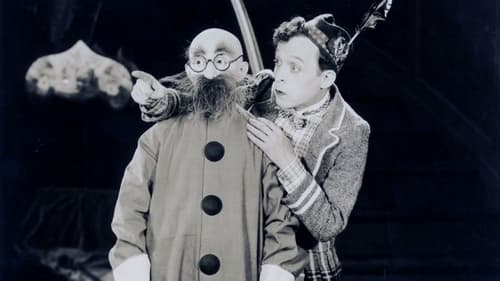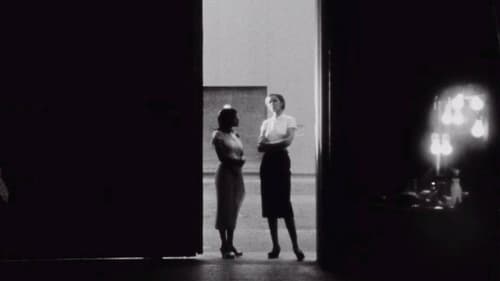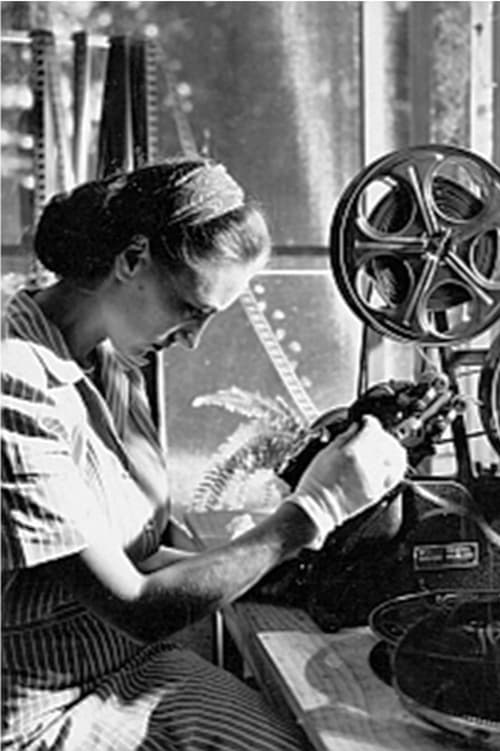Philips-Radio (1931)
Gênero : Documentário
Runtime : 36M
Director : Joris Ivens
Sinopse
An industrial film which shows the operations inside the Philips Radio plant: In a mêlée of activity, glassblowers make delicate glass bulbs. Machinery assists the bulb manufacture. A virtuoso glassblower begins a more complex tube used in radio broadcasting; it is then turned, fired, and sculpted. Conveyors carry partially completed units. Workers perform their various specific assembly-line tasks. Cases are manufactured and machined, wire harnesses are assembled, loudspeakers are produced. As radios near completion, they are run through a series of tests. Engineers and draughtsmen define future developments. In a closing stop-motion sequence, in a style reminiscent of Norman McLaren, a group of loudspeakers performs a playful dance. The film overall is a poetic depiction of an industrial process.

When a mysterious figure appears to cause a series of disruptions at the Frisbie Home in New York, word goes out to Scotland Yard that the Fuzz-Faced Phantom is at work. Soon, Charley MacNeesha and his assistant MacGregor are sent across the ocean to investigate.

Documentary film and home movie about Dwight Core, Jr., a boy with Down syndrome. The footage was originally shot throughout the 1960s and 1970s by Core's father, Dwight Core, Sr. The footage was later discovered and completed by the filmmaker's grandson, George Ingmire

Simple objects, photographs, and events prompt Frank to self-conscious rumination. From his homes in New York and Nova Scotia and on visits to friends, the artist contemplates his relationships, the anniversary of his daughter's death, his son's mental illness, and his work.

A six minute short made in New York City by Jeffrey Noyes Scher.

Through puppets and animation, a traveler tells his story of walking through Settsu, coming to the town of Ikuta. He asks if someone can show him the Seeker's Mound. Late that day, a solitary maiden says she will lead him there.

New carpet factory footage intercut with old porn creates a brief but telling glimpse into the human psyche.

A man who lives by himself becomes increasingly concerned that he is not alone. Based on the short story by Guy de Maupassant.

Schultz raises prize chickens and roosters that are always getting into neighbor Max Davidson's garden and eating the seeds, leading to constant feuding between the two men. When their children announce their engagement the two men decide to bury the hatchet and Davidson suggests a dinner at his house. He gives his young son, Ignatz, two dollars to buy a chicken but the boy pockets the money and kills Schultz' first place rooster instead. Once seated at the table all but Schultz discover what they are eating and desperately try to hide the bad news from Schultz who is sure to kill Davidson if he knows the truth.

A couple is conflicted when they are offered a chance at youth. Based on John Collier's short story “Youth from Vienna”.

An educational film from 1953 to encourage parents talk to their children about adolescence.

The Tin Woodman, framed by light bulbs, does a little dance, leaps and retrieves his axe from outside the frame, chops down a tree that turns into various objects, grabs a heart emblem from the corner, and goes to the Emerald City at night with Toto. He goes to the edge of a cliff, where he meats an Asian spirit who gives him a heart shape that becomes a kite that hooks to him with a cane. This is followed by approximately ten minutes of kaleidoscopic images, including a man's hands, a dancing girl, and a cutout of Krishna. - IMDb

"Even when we know the game is an illusion, the experience of Bleu Shut is entirely a pleasure: the ‘game’ is fun, the Nelson/Wiley debates, infectiously funny; and Nelson’s choice of imagery, quirky and amusing. Bleu Shut reveals, and allows us to enjoy, our gullibility within the pervasive absurdity of modern life." –Scott MacDonald

A man tries different ways to open a Coca Cola bottle.

A short film from Tom Corboy about devoted fans of Elvis Presley in the years after his death.

This short film sees the thoughts and process of Claes Oldenburg come to life as he produced the soft kinetic sculptures from his ice bag series at Gemini GEL print studios.

A remake, in English of the German film Nicht löschbares Feuer (1969).

Universal Hotel combines objective and subjective elements. In it, Thompson chronicles his research into experiments by Dr. Sigmund Rascher at Dachau in 1942, in which he nearly froze a Polish prisoner and then got a German prostitute to warm him up; Thompson uses photographs from archives in six countries and recounts a subjective dream set in what he calls the Universal Hotel.

A Greek documentary by Takis Kanellopoulos about wedding traditions in western Greece and Macedonia. It was filmed in the village of Velvendo.

A woman in a Hollywood dubbing studio struggles with race and preconceptions.







